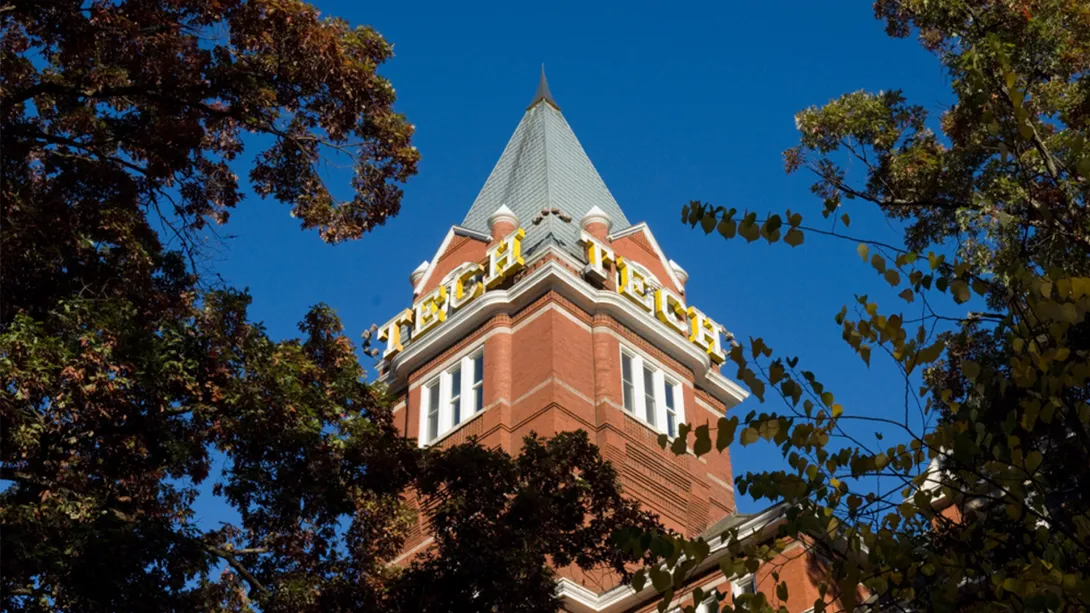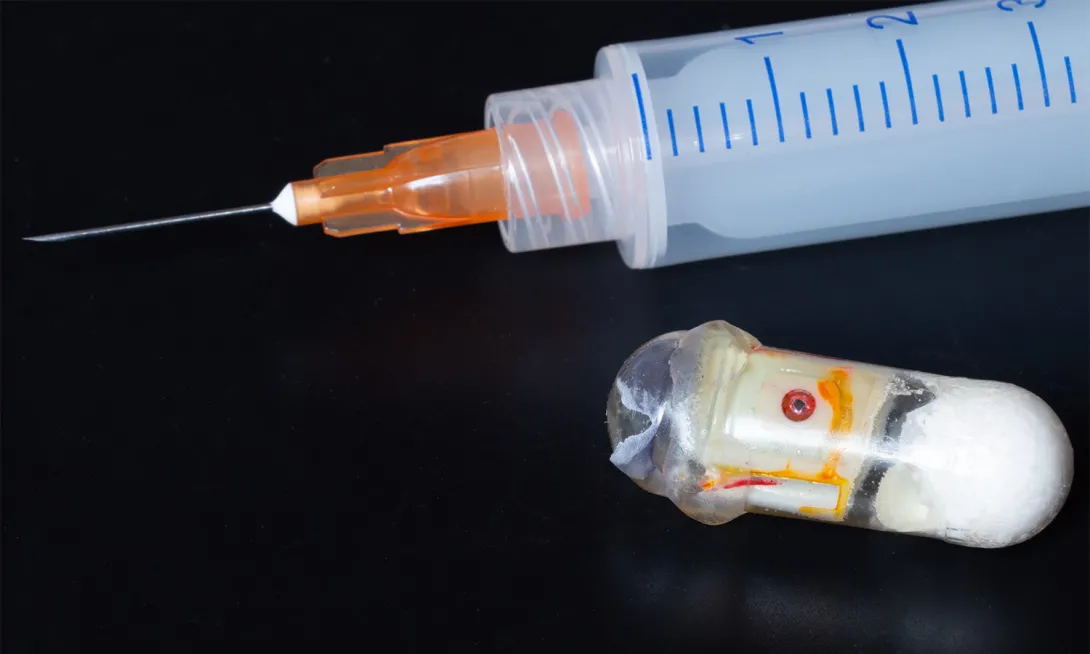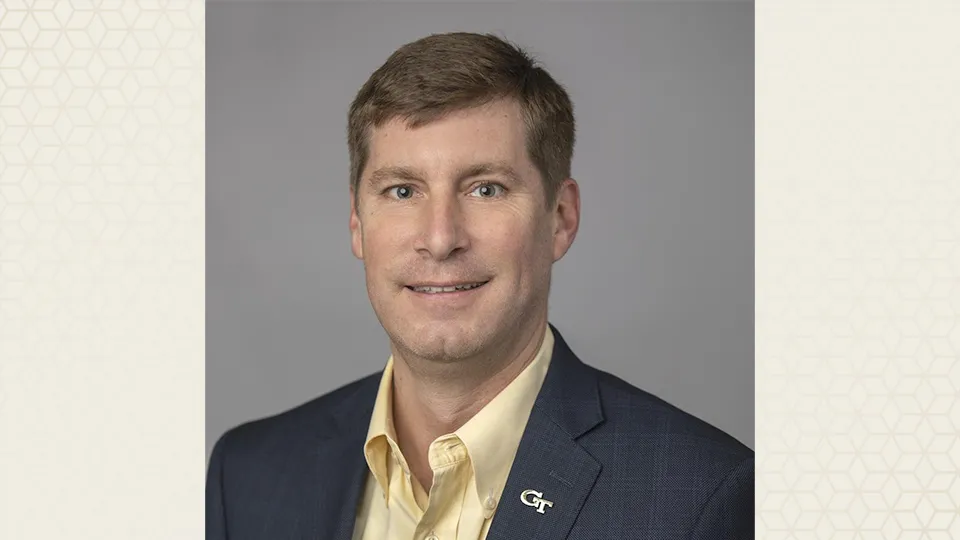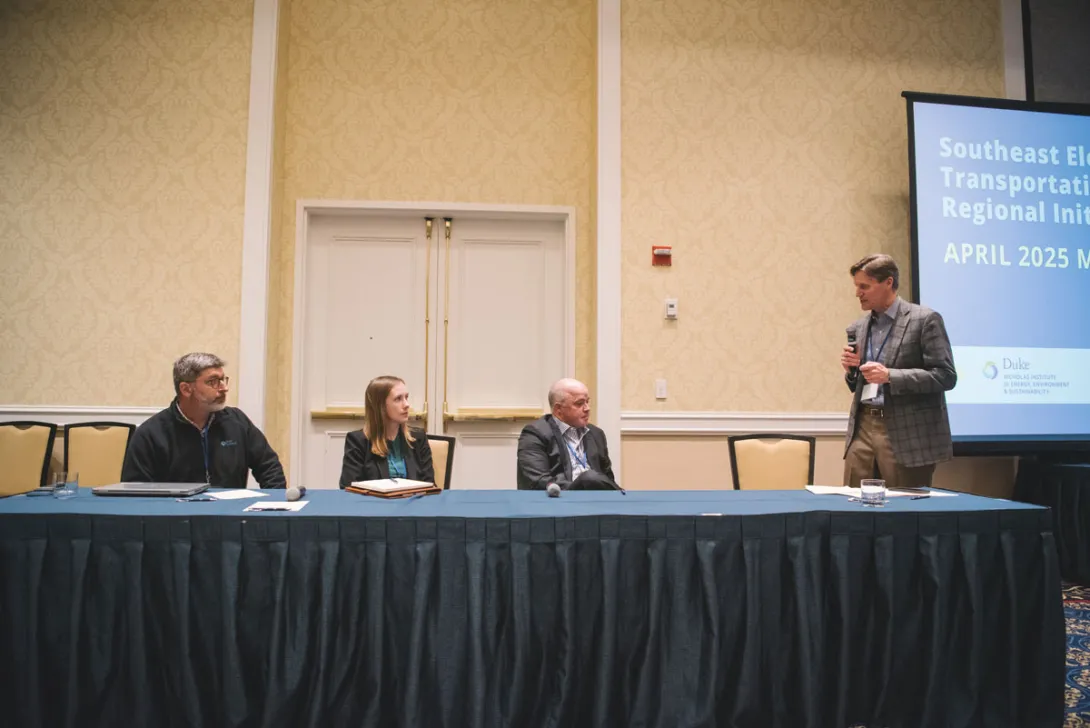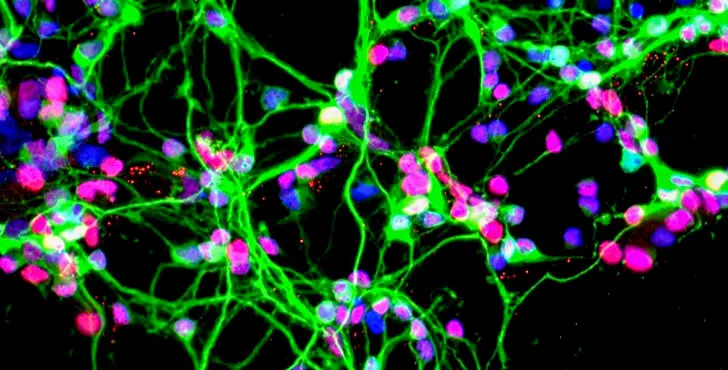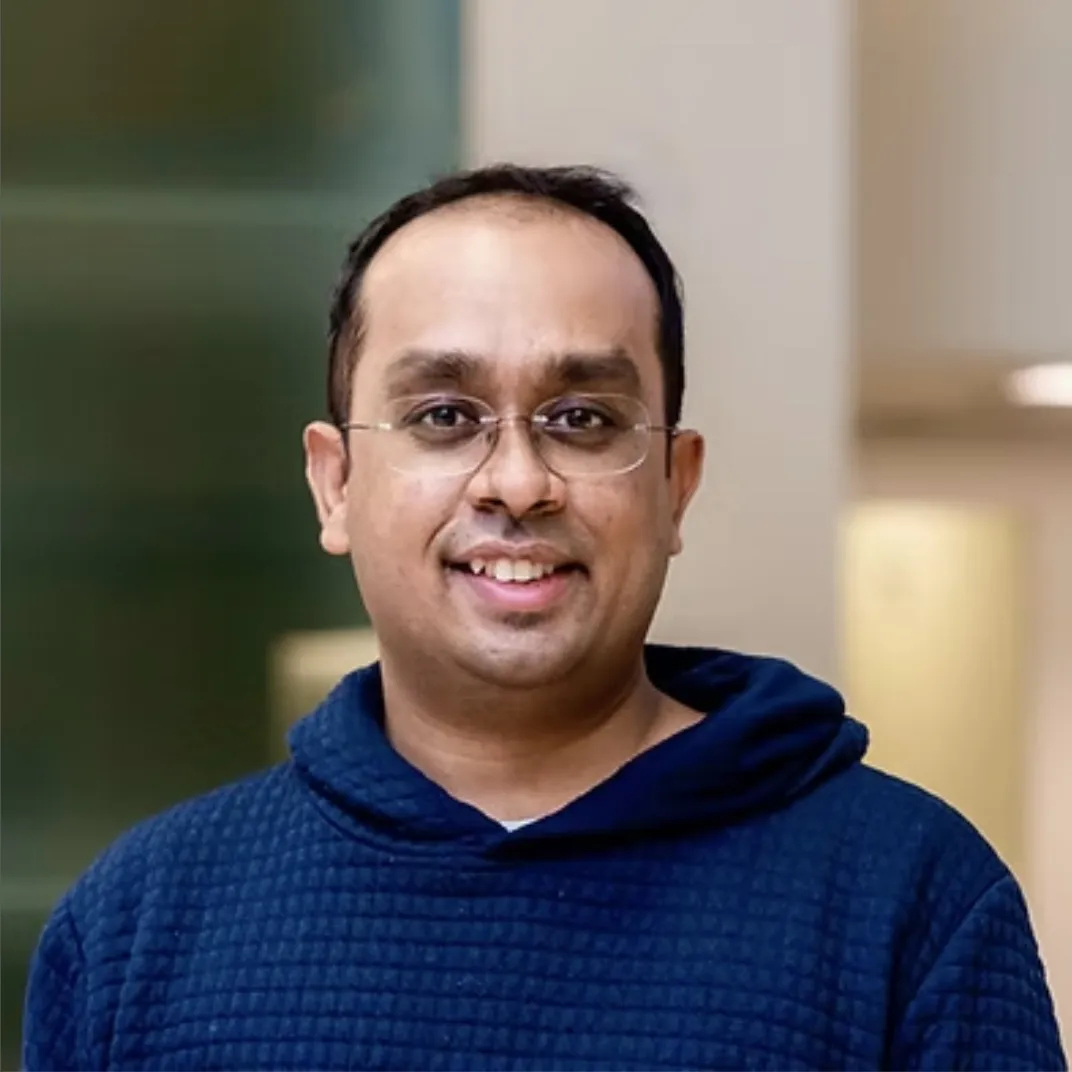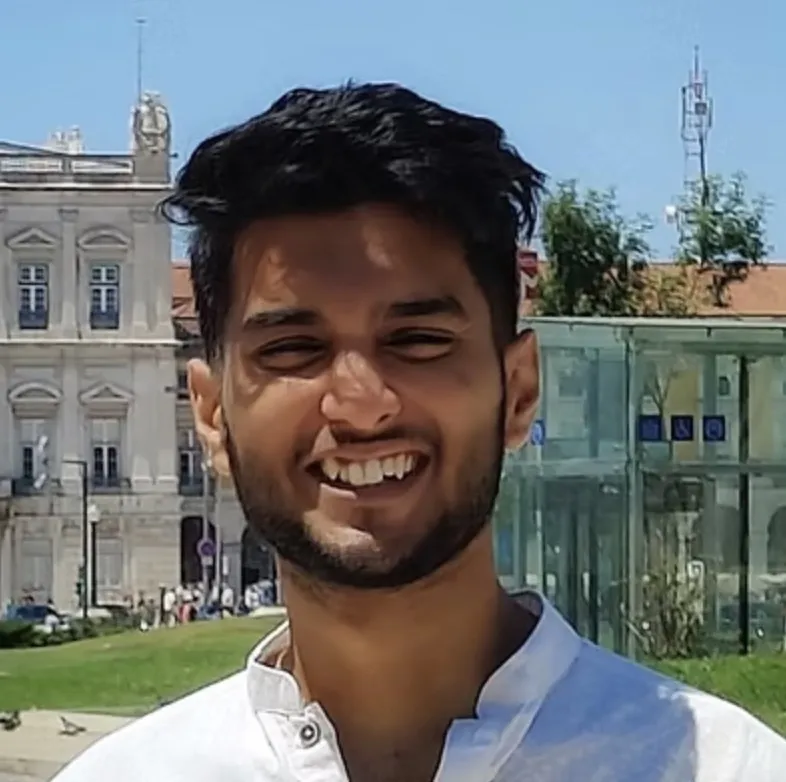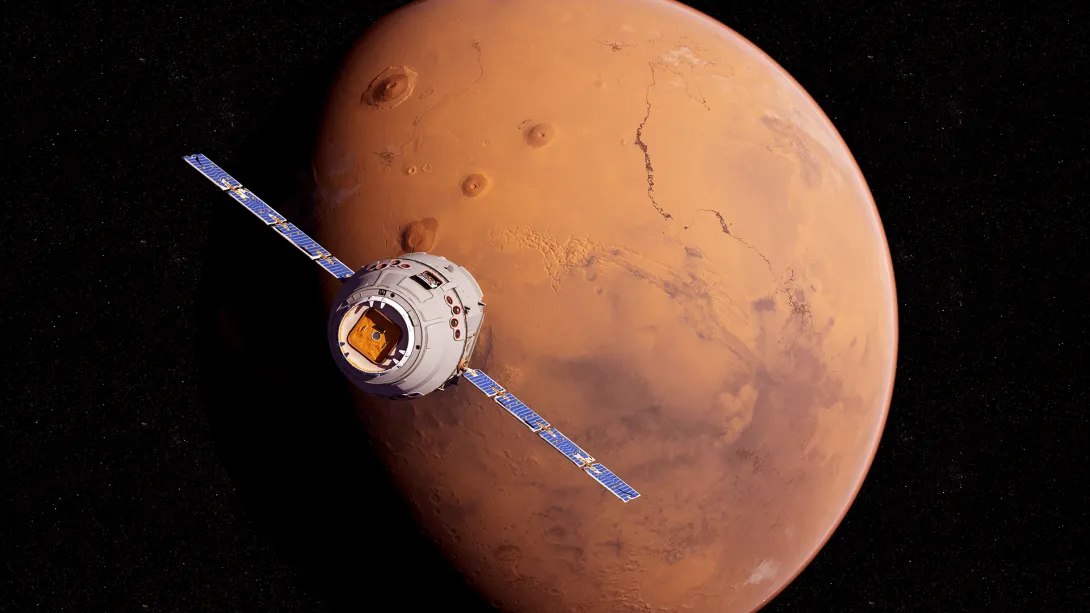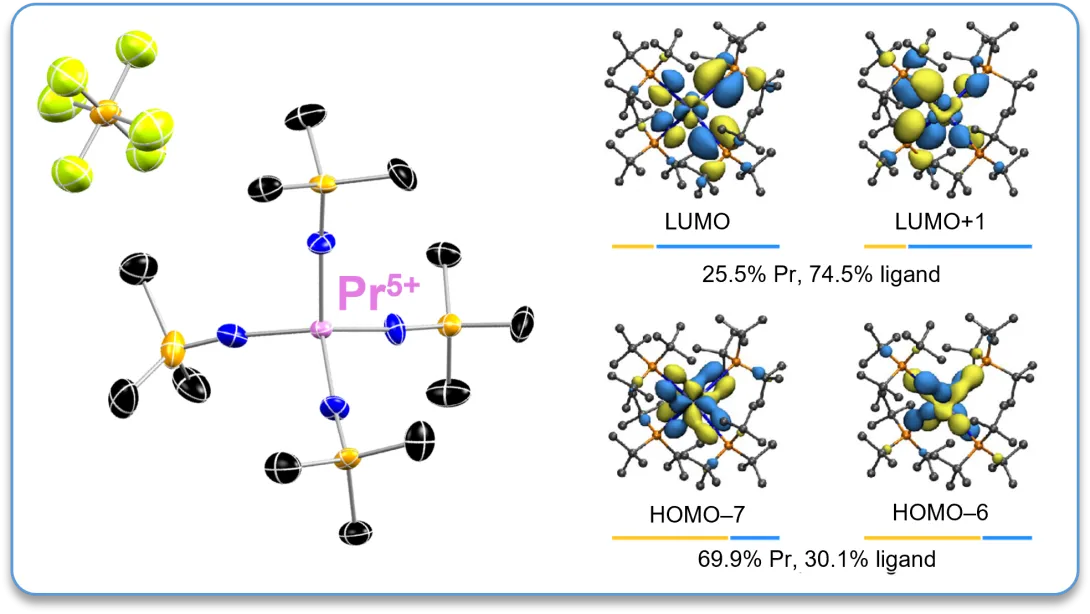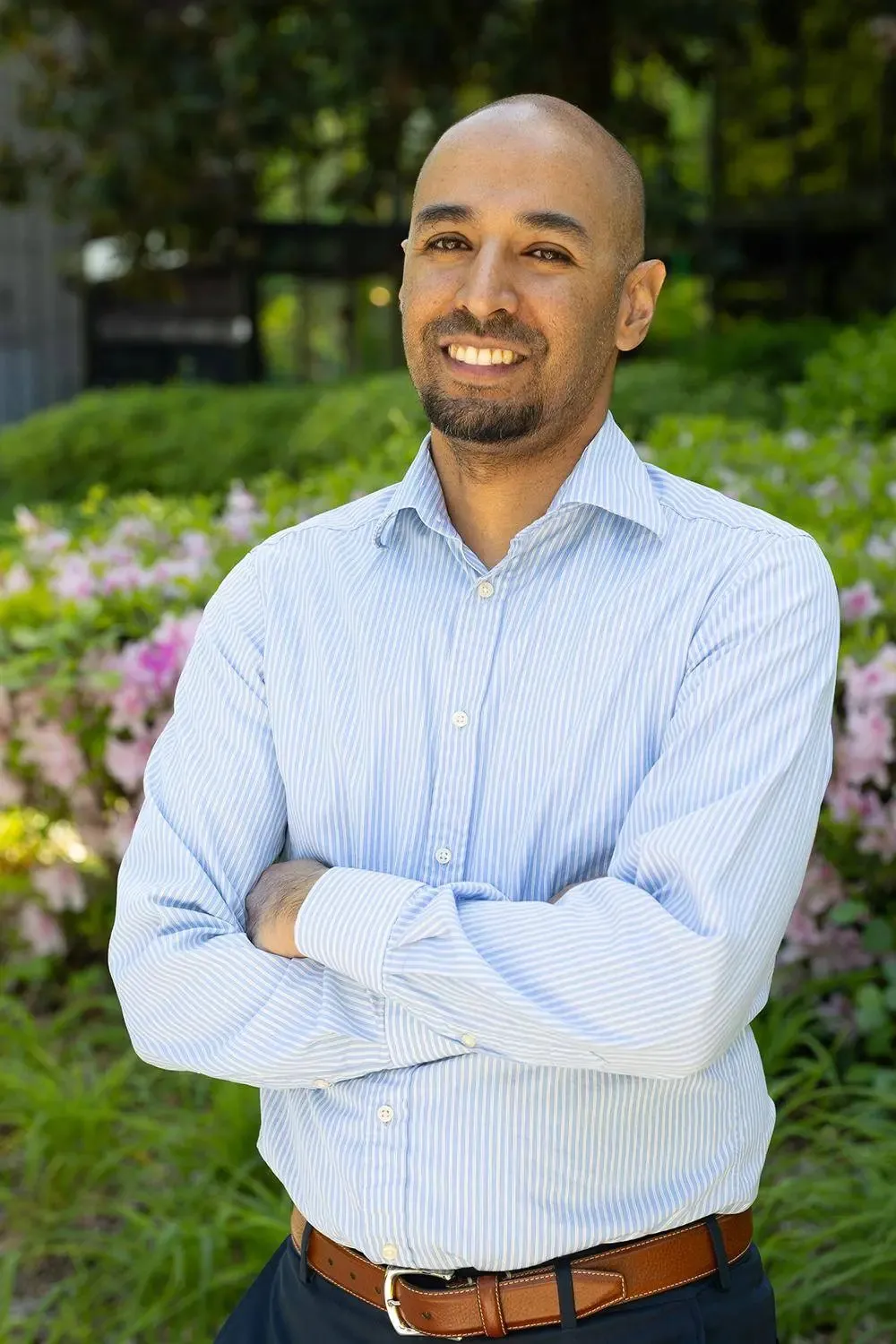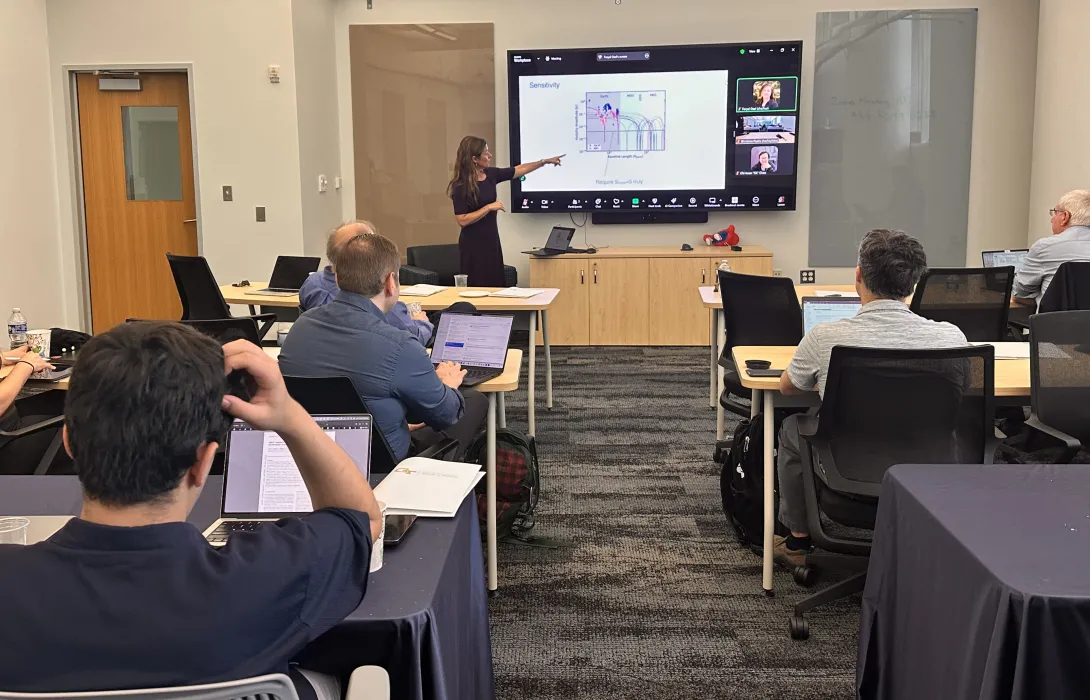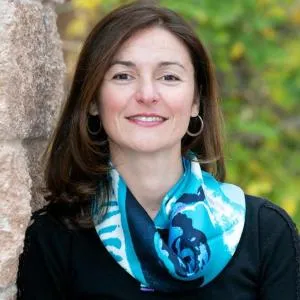Jul. 01, 2025
Georgia Tech has launched two new Interdisciplinary Research Institutes (IRIs): The Institute for Neuroscience, Neurotechnology, and Society (INNS) and the Space Research Institute (SRI).
The new institutes focus on expanding breakthroughs in neuroscience and space, two areas where research and federal funding are anticipated to remain strong. Both fields are poised to influence research in everything from healthcare and ethics to exploration and innovation. This expansion of Georgia Tech’s research enterprise represents the Institute’s commitment to research that will shape the future.
“At Georgia Tech, innovation flourishes where disciplines converge. With the launch of the Space Research Institute and the Institute for Neuroscience, Neurotechnology, and Society, we’re uniting experts across fields to take on some of humanity’s most profound questions. Even as we are tightening our belts in anticipation of potential federal R&D budget actions, we also are investing in areas where non-federal funding sources will grow and where big impacts are possible,” said Executive Vice President for Research Tim Lieuwen. "These institutes are about advancing knowledge — and using it to improve lives, inspire future generations, and help shape a better future for us all.”
Both INNS and SRI grew out of faculty-led initiatives shaped by a strategic planning process and campus-wide collaboration. Their evolution into formal institutes underscores the strength and momentum of Georgia Tech’s interdisciplinary research enterprise.
Georgia Tech’s 11 IRIs support collaboration between researchers and students across the Institute’s seven colleges, the Georgia Tech Research Institute (GTRI), national laboratories, and corporate entities to tackle critical topics of strategic significance for the Institute as well as for local, state, national, and international communities.
"IRIs bring together Georgia Tech researchers making them more competitive and successful in solving research challenges, especially across disciplinary boundaries,” said Julia Kubanek, vice president of interdisciplinary research. “We're making these new investments in neuro- and space-related fields to publicly showcase impactful discoveries and developments led by Georgia Tech faculty, attract new partners and collaborators, and pursue alternative funding strategies at a time of federal funding uncertainty."
The Space Research Institute
The Space Research Institute will connect faculty, students, and staff who share a passion for space exploration and discovery. They will investigate a wide variety of space-related topics, exploring how space influences and intersects with the human experience. The SRI fosters a collaborative community including scientific, engineering, cultural, and commercial research that pursues broadly integrated, innovative projects.
SRI is the hub for all things space-related at Georgia Tech. It connects the Institute’s schools, colleges, research institutes, and labs to lead conversations about space in the state of Georgia and the world. Working in partnership with academics, business partners, philanthropists, students, and governments, Georgia Tech is committed to staying at the forefront of space-related innovation.
The SRI will build upon the collaborative work of the Space Research Initiative, the first step in formalizing Georgia Tech’s broad interdisciplinary space research community. The Initiative brought together researchers from across campus and was guided by input from Georgia Tech stakeholders and external partners. It was led by an executive committee including Glenn Lightsey, John W. Young Chair Professor in the Daniel Guggenheim School of Aerospace Engineering; Mariel Borowitz, associate professor in the Sam Nunn School of International Affairs; and Jennifer Glass, associate professor in the School of Earth and Atmospheric Sciences. Beginning July 1, W. Jud Ready, a principal research engineer in GTRI’s Electro-Optical Systems Laboratory, will serve as the inaugural executive director of the Space Research Institute.
To receive the latest updates on space research and innovation at Georgia Tech, join the SRI mailing list.
The Institute for Neuroscience, Neurotechnology, and Society
The Institute for Neuroscience, Neurotechnology, and Society (INNS) is dedicated to advancing neuroscience and neurotechnology to improve society through discovery, innovation, and engagement. INNS brings together researchers from neuroscience, engineering, computing, ethics, public policy, and the humanities to explore the brain and nervous system while addressing the societal and ethical dimensions of neuro-related research.
INNS builds on a foundation established over a decade ago, which first led to the GT-Neuro Initiative and later evolved into the Neuro Next Initiative. Over the past two years, this effort has culminated in the development of a comprehensive plan for an IRI, guided by an executive committee composed of faculty and staff from across Georgia Tech. The committee included Simon Sponberg, Dunn Family Associate Professor in the School of Physics and the School of Biological Sciences; Christopher Rozell, Julian T. Hightower Chaired Professor in the School of Electrical and Computer Engineering; Jennifer Singh, associate professor in the School of History and Sociology; and Sarah Peterson, Neuro Next Initiative program manager. Their leadership shaped the vision for a research community both scientifically ambitious and socially responsive.
INNS will serve as a dynamic hub for interdisciplinary collaboration across the full spectrum of brain-related research — from biological foundations to behavior and cognition, and from fundamental research to medical innovations that advance human flourishing. Research areas will encompass the foundations of human intelligence and movement, bio-inspired design and neurotechnology development, and the ethical dimensions of a neuro-connected future.
By integrating technical innovation with human-centered inquiry, INNS is committed to ensuring that advances in neuroscience and neurotechnology are developed and applied ethically and responsibly. Through fostering innovation, cultivating interdisciplinary expertise, and engaging with the public, the institute seeks to shape a future where advancements in neuroscience and neurotechnology serve the greater good. INNS also aims to deepen Georgia Tech’s collaborations with clinical, academic, and industry partners, creating new pathways for translational research and real-world impact.
An internal search for INNS’s inaugural executive director is in the final stages, with an announcement expected soon.
Join our mailing list to receive the latest updates on everything neuro at Georgia Tech.
News Contact
Laurie Haigh
Research Communications
Jun. 30, 2025
Georgia Tech engineers have created a pill that could effectively deliver insulin and other injectable drugs, making medicines for chronic illnesses easier for patients to take, less invasive, and potentially less expensive.
Along with insulin, it also could be used for semaglutide — the popular GLP-1 medication sold as Ozempic and Wegovy — and a host of other top-selling protein-based medications like antibodies and growth hormone that are part of a $400 billion market.
These drugs usually have to be injected because they can’t overcome the protective barriers of the gastrointestinal tract. Georgia Tech’s new capsule uses a small pressurized “explosion” to shoot medicine past those barriers in the small intestine and into the bloodstream. Unlike other designs, it has no complicated moving parts and requires no battery or stored energy.
“This study introduces a new way of drug delivery that is as easy as swallowing a pill and replaces the need for painful injections,” said Mark Prausnitz, who created the pill in his lab with former Ph.D. student Joshua Palacios and other student researchers.
In animal lab tests, they showed their capsule lowered blood sugar levels just like traditional insulin injections. The researchers reported their pill design and study results DATE in the Journal of Controlled Release.
Read about the technology on the College of Engineering website.
News Contact
Joshua Stewart
College of Engineering
Jun. 30, 2025
Effective July 1, W. Jud Ready will serve as the inaugural executive director of Georgia Tech’s new Space Research Institute (SRI), which will officially launch on the same date.
The SRI builds upon Georgia Tech’s long and distinguished history in space research and exploration. By uniting experts across disciplines — from aerospace engineering to planetary science, astrophysics, robotics, policy, the arts, and origin of life explorations — the SRI aims to create a resilient ecosystem for space research that can adapt and thrive, even in an era of fiscal uncertainty. It is composed of faculty, staff, and students whose collaborative research spans a broad spectrum of space-related topics, all deeply connected to advancing our understanding of space and its impact on the human experience.
“The launch of the SRI comes at a pivotal moment for the scientific community,” said Vice President of Interdisciplinary Research Julia Kubanek. “As the federal government proposes major cuts to funding agencies, our interdisciplinary research institutes are striving to support faculty and make them more competitive across disciplinary boundaries. This institute will publicly showcase impactful research led by Georgia Tech faculty, attract new collaborators, and pursue alternative funding strategies via philanthropic and industry partners.”
The Space Research Institute will consist of an interdisciplinary community of faculty across Georgia Tech’s schools, colleges, and the Georgia Tech Research Institute (GTRI).
“It is an honor to be appointed executive director of the Space Research Institute,” said Ready. “My plan is to provide internal and external space researchers with access to Georgia Tech’s world class facilities and turbocharge the space activities already underway. We’re committed to empowering our existing community while forging new partnerships that will expand our reach and impact across the global space ecosystem.”
Ready, a principal research engineer in GTRI’s Electro-Optical Systems Laboratory, is the first GTRI faculty member to serve in a long-term capacity as an IRI executive director. Prior to his appointment, he served as associate director of external engagement for the Georgia Tech Institute for Matter and Systems and director of the Georgia Tech Center for Space Technology and Research (CSTAR). He is also an adjunct professor in the School of Materials Science and Engineering at Georgia Tech.
Before joining the Georgia Tech faculty, Ready worked for General Dynamics and MicroCoating Technologies. Throughout his career, he has served as PI or co-PI for grants totaling more than $25M awarded by the Army, Navy, Air Force, DARPA, NASA, NSF, NIST, DOE, other federal sponsors, industry, charitable foundations, private citizens, and the States of Georgia and Florida. His current research focuses primarily on energy capture, storage, and delivery enabled by nanomaterial design. His research has been included on three missions to the International Space Station, two others to low earth orbit, and one perpetually in heliocentric orbit (Lunar Flashlight). His future space missions include MISSE-21 to the International Space Station and SSTEF-1 to the Lunar surface. A half dozen solar cells from his past missions to the International Space Station will be included in the permanent At Home in Space exhibit opening on the Smithsonian National Air and Space Museum's 50th Anniversary.
Ready has received numerous awards and honors for his work. His most recent awards include the Class of 1934 Outstanding Innovative Use of Education Technology award in 2025 and the Outstanding Achievement in Research Program Development award in 2023, both from Georgia Tech. He also received the One GTRI Collaboration Award in 2022, which he was awarded during GTRI’s annual Distinguished Performance Awards celebration.
Additional articles of interest:
10 Questions with Jud Ready
Space Station Testing Will Evaluate Photovoltaic Materials
News Contact
Laurie Haigh
Research Communications
Jun. 27, 2025
More than 70 people convened at Duke University and virtually on April 3 to highlight successes, challenges and opportunities across research, industry and policy on regional electric mobility in the Southeast.
The April 2025 Southeast Electric Transportation Regional Initiative (SETRI) meeting provided an information-sharing forum for a multisector group of electric mobility organizations from across the region. SETRI is a collaborative network connecting, informing and advancing transportation electrification in the Southeast. The event was hosted by the Duke University Nicholas Institute for Energy, Environment & Sustainability and Georgia Tech Strategic Energy Institute, in collaboration with SETRI partner organizations.
“Bringing this multisector community together is important to share ideas on how to best advance electric mobility—a key emerging industry in the southeastern United States and important strategy for reducing transportation emissions,” said Trey Gowdy, Nicholas Institute research lead and SETRI co-facilitator.
Throughout the morning, speakers shared insights about the electric vehicle (EV) landscape in North Carolina and throughout the Southeast, the state of the EV market and manufacturing, charging infrastructure, consumer education and local engagement and more. The event also featured a poster session, networking and an electric vehicle display.
SETRI organizers announced during the meeting that the Southeast Portal for Electric Transportation Opportunities has shared more than 500 opportunities since launching two years ago. The portal lists active funding sources, comment solicitations, research opportunities, events and other timely information related to transportation electrification in the region.
“A focus of the SETRI network has been to deepen connections within our region, with the aim of accelerating progress between utilities, charging companies, investors, NGOs and universities. It was great to be in Durham after our session in Atlanta last year,” said Richard Simmons, principal research engineer at the Georgia Tech Strategic Energy Institute and SETRI co-facilitator.
Read Full Story on the Duke Nicholas Institute for Energy, Environment and Sustainability Newspage
News Contact
Priya Devarajan || Research Communications Program Manager, SEI
Jun. 26, 2025
Researchers at Georgia Tech have taken a critical step forward in creating efficient, useful and brain-like artificial intelligence (AI). The key? A new algorithm that results in neural networks with internal structure more like the human brain.
The study, “TopoNets: High-Performing Vision and Language Models With Brain-Like Topography,” was awarded a spotlight at this year’s International Conference on Learning Representations (ICLR), a distinction given to only 2 percent of papers. The research was led by graduate student Mayukh Deb alongside School of Psychology Assistant Professor Apurva Ratan Murty.
Thirty-two of Tech’s computing, engineering, and science faculty represented the Institute at ICLR 2025, which is globally renowned for sharing cutting-edge research.
“We started with this idea because we saw that AI models are unstructured, while brains are exquisitely organized,” says first-author Deb. “Our models with internal structure showed more than a 20 percent boost in efficiency with almost no performance losses. And this is out-of-the-box — it’s broadly applicable to other models with no extra fine-tuning needed.”
For Murty, the research also underscores the importance of a rapidly growing field of research at the intersection of neuroscience and AI. “There's a major explosion in understanding intelligence right now,” he says. “The neuro-AI approach is exciting because it helps emulate human intelligence in machines, making AI more interpretable.”
“In addition to advancing AI, this type of research also benefits neuroscience because it informs a fundamental question: Why is our brain organized the way it is?,” Deb adds. “Making AI more interpretable helps everyone.”
Brain-inspired blueprints
In the brain, neurons form topographic maps: neurons used for comparable tasks are closer together. The researchers applied this concept to AI by organizing how internal components (like artificial neurons) connect and process information.
This type of organization has been tried in the past but has been challenging, Murty says. “Historically, rules constraining how the AI could structure itself often resulted in lower-performing models. We realized that for this type of biophysical constraint, you simply can’t map everything — you need an algorithmic solution.”
“Our key insight was an algorithmic trick that gives the same structure as brains without enforcing things that models don't respond well to,” he adds. “That breakthrough was what Mayukh (Deb) worked on.”
The algorithm, called TopoLoss, uses a loss function to encourage brain-like organization in artificial neural networks, and it is compatible with many AI systems capable of understanding language and images.
“The resulting training method, TopoNets, is very flexible and broadly applicable,” Murty says. “You can apply it to contemporary models very easily, which is a critical advancement when compared to previous methods.”
Neuro-AI innovations
Murty and Deb plan to continue refining and designing brain-inspired AI systems. “All parts of the brain have some organization — we want to expand into other domains,” Deb says. “On the neuroscience side of things, we want to discover new kinds of organization in brains using these topographic systems.”
Deb also cites possibilities in robotics, especially in situations like space exploration where resources are limited. “Imagine running a model inside a robot with limited power,” he says. “Structured models can help us achieve 80 percent of performance with just 20 percent of energy consumption, saving valuable energy and space. This is still experimental, but it's the direction we are interested in exploring.”
“This success highlights the potential of a new approach, designing systems that benefit both neuroscience and AI — and beyond,” Murty adds. “We can learn so much from the human brain, and this project shows that brain-inspired systems can help current AI be better. We hope our work stimulates this conversation.”
Jun. 25, 2025
More than half a century after the United States won the race to the moon, the White House is setting its sights on a new frontier: Mars. In a move reminiscent of the Apollo era, the administration has proposed landing Americans on the red planet by the end of 2026 — a bold initiative that has reignited national ambition and drawn comparisons to the space race of the 20th century.
At Georgia Tech, researchers are already considering the mission’s implications, from engineering challenges to international diplomacy. While the White House has framed the mission as a demonstration of American leadership, experts say its success will depend on collaboration — across disciplines, sectors, and borders.
“This is more than a space race,” said Christos Athanasiou, an assistant professor in the Daniel Guggenheim School of Aerospace Engineering. “Mars isn’t just the next step for space exploration — it’s a stress test for everything we’ve learned about sustainability, resilience, and engineering under uncertainty.”
Engineering for the Red Planet
For Athanasiou, the Mars mission is a test of human ingenuity, creativity, and endurance. Unlike the moon, Mars is months away by spacecraft, with no quick return option. That distance introduces a host of engineering challenges that must be solved before a single boot touches Martian soil.
“Ensuring astronaut safety on such a long-duration mission requires us to understand how the Earth materials we will be using in our mission behave in extraterrestrial conditions,” he said.
In his recent TEDx talk, Athanasiou emphasized that the mission must also consider its environmental impact. Mars may be barren, but it is not immune to contamination. Athanasiou believes that strategies used for environmental remediation on Earth — such as waste recycling, habitat sustainability, and pollution control — can be adapted to protect the Martian environment.
“If we can build structures that survive Mars using recycled materials, AI, and Earth-born ingenuity, we’ll unlock entirely new ways to live — both out there and back here,” he said.
Reading the Martian Landscape
James Wray, a professor in the School of Earth and Atmospheric Sciences, has spent years analyzing Mars’ surface using data from orbiters and rovers. He sees the planet as both a scientific treasure trove and a logistical puzzle.
“Mars has vast lava plains, dust storms, and steep canyons that pose real risks to human settlement,” Wray said.
But beneath the challenges lies opportunity. Mars is home to significant deposits of water ice, especially near the poles and just below the surface in some mid-latitude regions. That water could be used not only for drinking but also for producing oxygen and rocket fuel — critical resources for long-term habitation and return missions.
“The presence of water ice near the surface is a game changer. It could support life, and more importantly, it could support us,” Wray said.
He also noted that Mars’ thin atmosphere — just 1% the density of Earth’s — complicates everything from landing spacecraft to shielding astronauts from cosmic radiation. “We’ve learned a lot from robotic missions. Now it’s time to apply that knowledge to human exploration.”
Diplomacy Beyond Earth
Lincoln Hines, an assistant professor in the Sam Nunn School of International Affairs, says that the Mars mission could have significant diplomatic implications. “The Mars mission has little to no bearing on space security; it has no military value,” he said. However, he noted that international cooperation could still play a valuable role in reducing the financial burden of such a costly endeavor.
Hines warned that shifting U.S. priorities from the moon to Mars could strain the international partnerships built through the Artemis program. He explained that some countries may view the Mars initiative as a distraction from the more immediate and economically promising lunar goals. Political instability in the U.S., he added, could further erode trust in its long-term commitments. “Countries may lose faith that the United States is a reliable partner to cooperate with for its lunar program if Mars seems to be the new priority,” he said.
He also pointed to existing legal frameworks like the Outer Space Treaty, which prohibits sovereign claims on celestial bodies, and the Rescue Agreement, which obliges nations to assist astronauts in distress. While these agreements provide a foundation, Hines emphasized that they don’t fully address the complexities of future Mars missions.
Establishing international norms for Mars exploration, he said, will be challenging. “Norms are really hard to develop,” Hines explained, noting that countries often hesitate to commit to rules without assurance that others will do the same. Still, he suggested that Mars — with its limited material value — might offer a rare opportunity for cooperation, if nations are willing to engage in good faith.
News Contact
Siobhan Rodriguez
Senior Media Relations Representative
Institute Communications
Jun. 24, 2025
A longstanding mystery of the periodic table involves a group of unique elements called lanthanides. Also known as rare earth elements, or REEs, these silvery-white metals are challenging to isolate, given their very similar chemical and physical properties. This similarity makes it difficult to distinguish REEs from one other during extraction and purification processes.
The world has come to depend on lanthanides’ magnetic and optical properties to drive much of modern technology — from medical imaging to missiles to smart phones. These metals also are in short supply, and because they’re found in minerals, lanthanides are difficult to mine and separate. But that may change — thanks to a Georgia Tech-led discovery of a new oxidation state for a lanthanide element known as praseodymium.
For the first time ever, praseodymium achieved a 5+ oxidation state. Oxidation occurs when a substance meets oxygen or another oxidizing substance. (The browning on the flesh of a cut apple, as well as rust on metal, are examples of oxidation.)
As far back as the 1890s, scientists suspected lanthanides might have a 5+ oxidation state, but lanthanides in that state were too unstable to see, said Henry ”Pete“ La Pierre, an associate professor in Georgia Tech’s School of Chemistry and Biochemistry. Discovering an element’s new oxidation state is like discovering a new element. As an example, La Pierre noted how plutonium’s discovery opened up a whole new area of the periodic table.
“A new oxidation state tells us what we don’t know and gives us ideas for where to go,” he explained. “Each oxidation state of an element has distinct chemical and physical properties — so the first glimpse of a novel oxidation presents a roadmap for new possibilities.”
La Pierre and colleagues at University of Iowa and Washington State University recently discovered the 5+ oxidation state for lanthanides.
“It was predicted but never seen until we found it,” said La Pierre, corresponding author of the study, “Praseodymium in the Formal +5 Oxidation State,” which was recently published in Nature Chemistry. “Lanthanides’ properties are really fantastic. We only use them commercially in one oxidation state — the 3+ oxidation state — which defines a set of magnetic and optical properties. If you can stabilize a higher oxidation state, it could lead to entirely new magnetic and optical properties.”
The researchers’ breakthrough will broaden the lanthanides’ technical applications in fields such as rare-earth mining and quantum technology and could lead to new electronic device architectures and applications.
“Research in lanthanides has already yielded significant dividends for society in terms of technological development,” La Pierre added.
The researchers hope to discover new tools for mining critical REEs, including improving lanthanide separation and recycling processes. When mining these elements, lanthanide elements are frequently mixed together. The separation process is painstaking and inefficient, generating a significant amount of waste. But with increasing global demand for REEs, the U.S. faces a supply issue. Figuring out how to improve lanthanides separation, potentially through oxidation chemistry, will ultimately enhance the supply of these critical elements.
— Anne Wainscott-Sargent
Funding: This research was supported by grants from the National Science Foundation and the U.S. Department of Energy.
News Contact
Shelley Wunder-Smith
Director of Research Communications
Jun. 24, 2025
Imagine boarding a jet in Atlanta and arriving in Japan in about the time it takes now to fly to Miami or Chicago.
That’s just one of the possibilities of research in an area of ultrafast flight called hypersonics. The term refers to traveling at roughly a mile a second, or about five times the speed of sound and faster.
Interest in hypersonics is growing, with early notions of high-speed passenger travel alongside defense and space applications driving questions about meeting the demands of Mach 5+ flight.
Such speeds introduce a host of new challenges for aerodynamics, thermal management, and rapid decision-making that Georgia Tech engineers are working to solve.
For Anirban Mazumdar in the George W. Woodruff School of Mechanical Engineering, aerospace questions have always been fascinating.
Hypersonics is an area where those questions are tough. Uncovering answers can have real impact on unlocking new capabilities for travel across the globe or to space, in addition to national security implications.
“It’s very challenging. We are trying to deal with very extreme scenarios, and we’re trying to do it, not just to advance science, but primarily because it matters to our country,” Mazumdar said. “That combination is incredible.”
News Contact
By: Joshua Stewart (jstewart@gatech.edu)
Jun. 10, 2025
A new mission strives to take black hole imaging to space. Scientists from the Georgia Institute of Technology, the Georgia Tech Research Institute (GTRI), the National Aeronautics and Space Administration (NASA), and 12 universities from around the world recently convened for a three-day workshop to plan the launch of the Space-based Precision Millimeter Interferometry Telescope (SPRITE) project. The proposed NASA Medium-Class Explorer mission aims to revolutionize the understanding of black holes through space-based imaging.
From Earth to orbit: The next step
SPRITE builds on the groundbreaking achievements of the Event Horizon Telescope (EHT), a network of ground-based telescopes able to synchronize observations from around the globe. EHT is most well-known for capturing the first images of black holes, M87* and Sagittarius A*.
“We’ve done what we can from the ground; we’ve run out of Earth,” says Professor and Chair of the School of Physics Feryal Özel, SPRITE’s principal investigator and a well-known astrophysicist instrumental in EHT’s success and development. “SPRITE will send two telescopes into orbit – achieving better imaging than a dozen telescopes on the ground.”
By sending the telescopes into space, the mission will be able to overcome the limitations of Earth’s atmosphere, which blocks certain wavelengths of light and produces turbulence that can degrade image quality. Unlike Earth-based telescopes, which rely on the planet’s rotation to change viewing angles, SPRITE’s telescopes will rotate independently across the vastness of space with data continuously transmitted from the satellites to ground stations.
“I like to think of it as an MRI machine rotating around a patient,” explains Özel. “In space, our telescopes can perform this orbital dance from great distances – giving us multiple perspectives of a black hole and allowing us to build a much more complete image.”
Mission goals
SPRITE’s objectives are ambitious and far-reaching, specifically to:
- Create more images of previously unseen black holes at resolutions better than M87* and Sagittarius A*;
- Confirm the presence of binary black holes through visual imagery; and
- Study the hot gas dynamics around black holes.
This class of mission requires a three-year operational lifetime to achieve its main science goals – although planners estimate the project will be able to operate considerably longer.
Preparing for launch
SPRITE is being organized to reflect Georgia Tech’s commitment to advancing space science through interdisciplinary collaboration and innovation, and will work closely with the Institute’s new Space Research Initiative. Locating SPRITE at Georgia Tech allows the mission to benefit from the knowledge of leading experts from the Colleges of Sciences, Engineering, and Computing; and GTRI.
The recent kickoff meeting marked SPRITE’s first large-scale gathering of contributors from around the world.
“We had smaller meetings before, but this was the first time the full team came together to share expertise and collaboratively shape the mission,” says Özel. “Most importantly, this meeting showed us that we have a strong scientific case for our mission and its design.”
Over the next two to three years, the team will work to validate key technologies and prepare a compelling proposal for NASA. If selected, SPRITE is expected to launch in the mid-2030s, marking the beginning of a new era in space imaging.
News Contact
Laura S. Smith, writer
Jun. 05, 2025
Georgia Tech scientists have uncovered evidence that a mountain on the rim of Jezero Crater — where NASA’s Perseverance Rover is currently collecting samples for possible return to Earth — is likely a volcano. Called Jezero Mons, it is nearly half the size of the crater itself and could add critical clues to the habitability and volcanism of Mars, transforming how we understand Mars’ geologic history.
The study, “Evidence for a composite volcano on the rim of Jezero crater on Mars,” was published this May in the Nature-family journal Communications Earth & Environment, and underscores how much we have left to learn about one of the most well-studied regions of Mars.
Lead author Sara C. Cuevas-Quiñones completed the research as an undergraduate during a summer program at Georgia Tech; she is now a graduate student at Brown University. The team also included corresponding author Professor James J. Wray (School of Earth and Atmospheric Sciences), Assistant Professor Frances Rivera-Hernández (School of Earth and Atmospheric Sciences), and Jacob Adler, then a postdoctoral fellow at Georgia Tech and now an assistant research professor at Arizona State University.
“Volcanism on Mars is intriguing for a number of reasons — from the implications it has on habitability, to better constraining the geologic history,” Wray says. “Jezero Crater is one of the best studied sites on Mars. If we are just now identifying a volcano here, imagine how many more could be on Mars. Volcanoes may be even more widespread across Mars than we thought.”
A mountain in the margins
Wray first noticed the mountain in 2007, while considering Jezero Crater as a graduate student.
“I was looking at low-resolution photos of the area and noticed a mountain on the crater’s rim,” he recalls. “To me, it looked like a volcano, but it was difficult to get additional images.” At the time, Jezero Crater was newly discovered, and imaging focused almost entirely on its intriguing water history, which is on the opposite side of the 28-mile-wide crater.
Then, Jezero Crater, due to these lake-like sedimentary deposits, was selected as the landing spot for the 2020 Perseverance Rover — an ongoing NASA mission seeking signs of ancient Martian life and collecting rock samples for possible return to Earth.
However, after landing, some of the first rocks Perseverance encountered were not the sedimentary deposits one might expect from a previously-flooded area — they were volcanic. Wray suspected he might know the origin of these rocks, but to make a case for it, he would need to show that the mountain on the edge of Jezero Crater could indeed be a volcano.
A new researcher — and old data
The opportunity presented itself several months after Perseverance landed when Cuevas-Quiñones applied to a Summer Research Experience for Undergraduates (REU) program hosted by the School of Earth and Atmospheric Sciences to work with Wray.
“A previous study led by Briony Horgan (professor of planetary science at Purdue University) had also suggested that Jezero Mons could be volcanic,” Cuevas-Quiñones says. “I began wondering if there was a way to home in on these suspicions.”
The team partnered with study coauthor Rivera-Hernández, who specializes in characterizing the surface of planets and their habitability. They decided to use datasets gathered from spacecraft orbiting Mars to compare the properties of Jezero Mons to other, known, volcanoes. “We can’t visit Mars and definitively prove that Jezero Mons is a volcano, but we can show that it shares the same properties with existing volcanoes — both here on Earth and Mars,” Wray explains.
“We used data from the Mars Odyssey Orbiter, Mars Reconnaissance Orbiter, ExoMars Trace Gas Orbiter, and Perseverance Rover, all in combination to puzzle this out,” he adds. “I think this shows that these older spacecraft can be extremely valuable long after their initial missions end — these old spacecraft can still make important discoveries and help us answer tricky questions.”
For Cuevas-Quiñones, it also underscores the importance of REU programs and opportunities for undergraduates. “I was an undergraduate student at the time, and this was my first time conducting research,” she says. “It was fascinating to learn how different data sets could be used to decode the origin of a landscape. After Jezero Mons, it became clear to me that I would continue to study Mars and other planetary bodies.”
The search for life — and determining Mars’ age
The discovery makes the crater even more intriguing in the search for past life on Mars. A volcano so close to watery Jezero Crater could add a critical source of heat on an otherwise cold planet, including the potential for hydrothermal activity — energy that life could use to thrive.
This type of system also holds interest for Mars as a whole. “The coalescence of these two types of systems makes Jezero more interesting than ever,” shares Wray. “We have samples of incredible sedimentary rocks that could be from a habitable region alongside igneous rocks with important scientific value.” If returned to Earth, igneous rocks can be radioisotope dated to know their age very precisely. Dating the Jezero Crater samples could be used to calibrate age estimates, providing an unprecedented window into the geologic history of the planet.
The take home message? “Mars is the best place we have to look in our solar system for signs of life, and thanks to the Perseverance Rover collecting samples in Jezero, the United States has samples from the best rocks in the best place on Mars,” Wray says. “If these samples are returned to Earth, we can do incredible, groundbreaking science with them.”
DOI: https://doi.org/10.1038/s43247-025-02329-7
Funding: Cuevas-Quiñones was supported by Georgia Tech’s 2021 Research Experience for Undergraduates program sponsored by NSF and 3M corporation. Wray was supported by NASA funding for Co-Investigators on HiRISE and CaSSIS. CaSSIS is a project of the University of Bern and funded through the Swiss Space Office via ESA’s PRODEX program. The instrument hardware development was also supported by the Italian Space Agency (ASI) (ASI-INAF agreement 2020-17-HH.0), INAF/Astronomical Observatory of Padova, and the Space Research Center (CBK) in Warsaw. Support from SGF (Budapest), the University of Arizona Lunar and Planetary Lab, and NASA are also gratefully acknowledged. Operation support from the UK Space Agency is also acknowledged.
News Contact
Written by Selena Langner
Pagination
- Previous page
- 2 Page 2
- Next page
